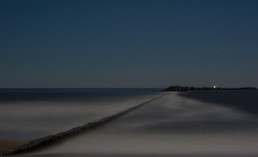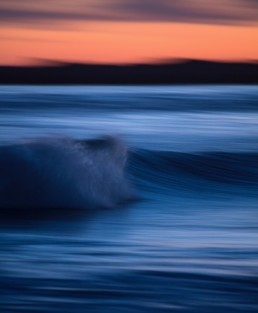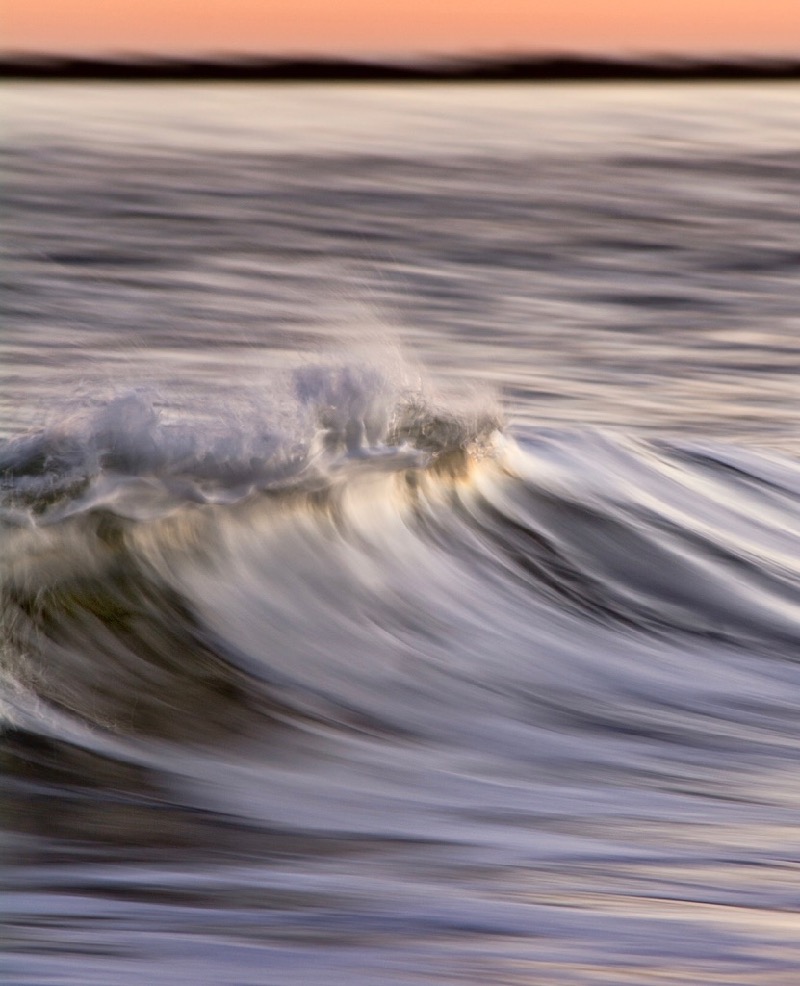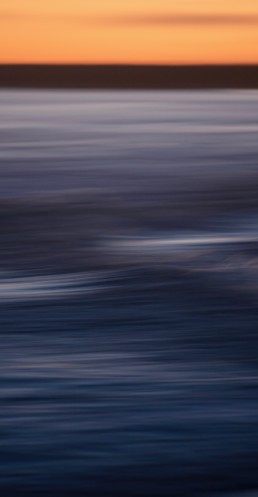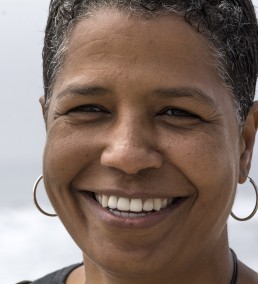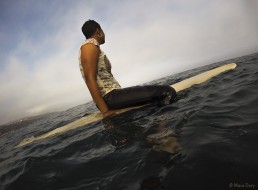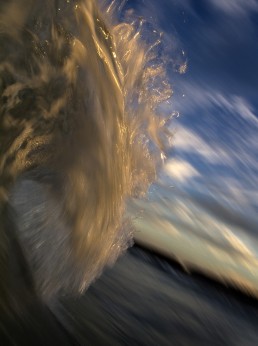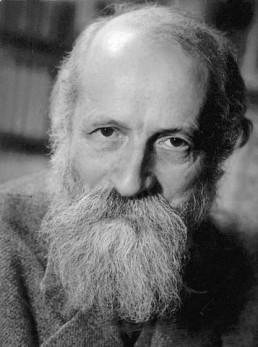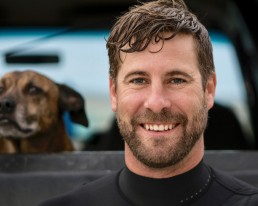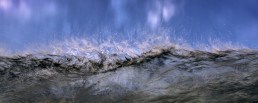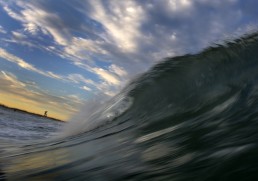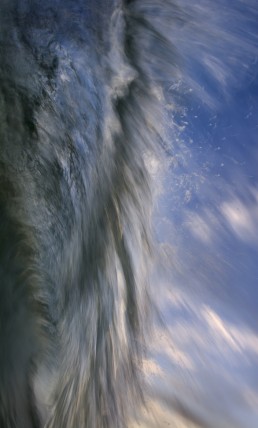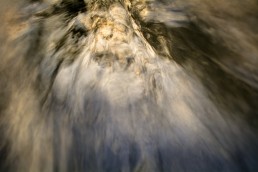Winter Solstice
Choice, acceptance, and caretaking in the dark
Every life includes moments when there’s a fundamental shift, something beyond our control and, potentially, our capacity to comprehend. Sometimes these shifts are brought about by a dramatic event: a birth, death, or diagnosis, something that we can’t help but have enough sense to notice, attend to, try to remember and learn from. Sometimes these alterations in our world, and in how we are in it, bring with them a series of clear choices. But, for those of us who live a life of sufficient food, water, shelter, and lots and lots of screens, these potential shifts can often start as subtle, seemingly minute changes, as subtle as a day that’s a couple of minutes shorter, then one that’s longer. Changes like these are easily overlooked in the sensory onslaught of our culture with its pop-up plagued, quantum acceleration of the superficial masquerading as the meaningful.
Many of us, myself definitely included, have to struggle (if we think to struggle) to hold on to a connection to a sensory world that’s not altered by our immediate choices. We have to cultivate a daily feeling of full embodiment, of being alive, loving, hurting, laughing, grieving social primates in an enchanting web of life that somehow, improbably, landed us here, in a place. Perhaps we encounter mystery and resilience in a squirrel in the backyard who is managing life with no tail, or some cocktail of magic and revelation in an unexpected encounter with a stranger who might become the friend we’ve always longed to share our thoughts with. Or maybe we hear about a new book that, if we make time to read it, might exponentially deepen our appreciation of the nuanced mystery in what we thought we already valued and knew. Perhaps, one otherwise quotidian, scrolling, swiping day, we might allow ourselves a chance to fully inhabit spacious time and try something unfamiliar that could become a practice that, if embraced with discipline, will change our vision of the possible and reacquaint us with what’s important.
Many of us, myself definitely included, have to struggle (if we think to struggle) to hold on to a connection to a sensory world that’s not altered by our immediate choices. We have to cultivate a daily feeling of full embodiment, of being alive, loving, hurting, laughing, grieving social primates in an enchanting web of life that somehow, improbably, landed us here, in a place.
Whether through opportunity, exigency, or emergency our own life moments can, by their nature, be difficult to predict in particular but, once we’ve lived enough blind-siding loss and unearned joy, we know they’ll continue to come to us. But then there are other changes that encompass all of our lives, as reliable as the seasons. If we can muster it, full attention to changes that emanate from a world we perceive as beyond us are instances of potential transformation for us too. This attention is hard-won. Sometimes even these most predictable of shifts in the more than human world (like the solstice) are so subtle that we can miss or dismiss their whispered offers.
Perhaps our default thinking is hyper critical and we’re skeptical of mystery. Or our focus is fragmented by the empty promise of fleeting stimulation that blinds us with an illusion of control with scant spiritual or existential satisfaction— too many consumer “choices” that, when exercised, just leave us feeling drained (emotionally and financially) and still hungry for more. We sometimes have to work to reinforce or resuscitate our intuition, our deep animal sense of recognizing moments of profound choice in the face of the why-is-there-something-not-nothing mystery. It takes intention to bring that intuition to deciding which option might be good for us. This capacity benefits from practice at reflection, internal quiet, and the courage to ride whatever waves that quiet throws at us. It usually means eschewing many opportunities in favor of one single, sometimes elusive one. It could mean honoring whatever unpredictable thing needs to happen, first internally and then, with still more courage, in honestly realizing the shape our unfolding life must now take.
Cultivating this kind receptivity can take so many forms. Seated meditation is powerful and, although it took me half a century to finally do it with any regularity, has since proven an invaluable addition to my own life. But sitting on my cushion in my living room is still putting myself in a very comfortable, pleasant box and my sliver of the culture, especially this time of year, is definitely both comfort and box-heavy. For me, being in the surf, especially in small waves where I have little (but not no) fear of an entity that is clearly, undeniably, and perpetually beyond my control is one of the most potent ways I’ve found to train myself to have the open minded and open hearted awareness to be alert to potential of all sorts. Balancing a view of the constant horizon line and the changing pattern of swell in the water, I can work on my bodily recognition of shifting possibilities in every evanescent instance. Recognizing my own fluctuating limitations and capacities and matching those to the ongoing opportunities of oceanic flux is a way of cultivating what I most value in myself (appreciation, enthusiasm, a gift for pattern recognition, and a capacity for unbridled joy) and what I really freaking wish I had more of (careful attention, courage, independence).
Living at least part of life according to the dictates of tide, weather, and wind offers a watery grounding that makes many of the surfers I know happier people. They are scientists, professors, real estate agents, engineers, artists, tradespeople, and dozens of other things when they are dry. But when we’re in the water we all become something different and similar, separate from our land-lives but connected to one another, supplicants of the sea. We cheer our friend into waves as we feel the thrill of the other in our own tingling bodies. In precious seconds of profound connection we are re-created by feeding off of energy moving them, both wave and body visible manifestations of invisible planetary forces. While oceanographers and good old-fashioned Newtonian physicists could explain plenty of what’s going on out there, the immediate sensory experience and the knowledge that none of us can control those forces lead us to a common interior place— mystery.
But, of course, it isn’t necessary to surf a wave to get this kind of grounding and cultivate this kind of practice, to encounter mystery and profound companionship in the more than human world. As the wise and eloquent surfer Andrea Kabwasa pointed out, any intimate, ongoing, disciplined connection to the natural world has the potential to get you there. And, for better or worse, in our structured, boxed-in, screenful world, it does take discipline for most of us to find and maintain this sort of connection. Kabwasa points out a straightforward path open to most of us. One that leads to spending more time turning things off, going outdoors, and being in what’s there, in your place.
It’s December now. It’s the time of year, at least here in my mid-Atlantic, Northern Hemisphere latitude, when the butter tastes better and the sun disappears too soon. It’s easy to find yourself (by which I mean myself) wishing for more daylight and warmth. And, if you’re fortunate enough to have some choice over where you spend your time, it can be exhilarating and energizing to escape the cold and dark and travel somewhere warm and sunny… But even if the darkness is all you can access today, that very lack of control might just offer you some wisdom— all the more so precisely because you have fewer choices.
In her book The Nature Fix, Florence Williams summarizes the current research showing how good for us getting out in the natural world is, even if we aren’t always comfortable while we’re out there. Long before Williams penned this informative read, I’d witnessed so many people experience the transformative power of stepping away from the climate controlled box where all the lumens you needed to see under and behind every hidden place were a flick away. In the process of figuring out how to be okay in the cold darkness, of watching light fade and letting their senses adjust, people often confront and, after some internal drama, transcend a kind of fear they hadn’t previously had cause to even suspect they were limited by. I’ve witnessed this fear enough times, in myself and others, to recognize it as a sacred opportunity, although I’ll never lose the wincing empathy I have for those going through it for the first time.
Taking some old, tried ideas into the darkness with you can help your mind know what to do with the fear. I recently read Sharon Lebell’s The Art of Living: The Classical Manual on Virtue, Happiness, and Effectiveness. 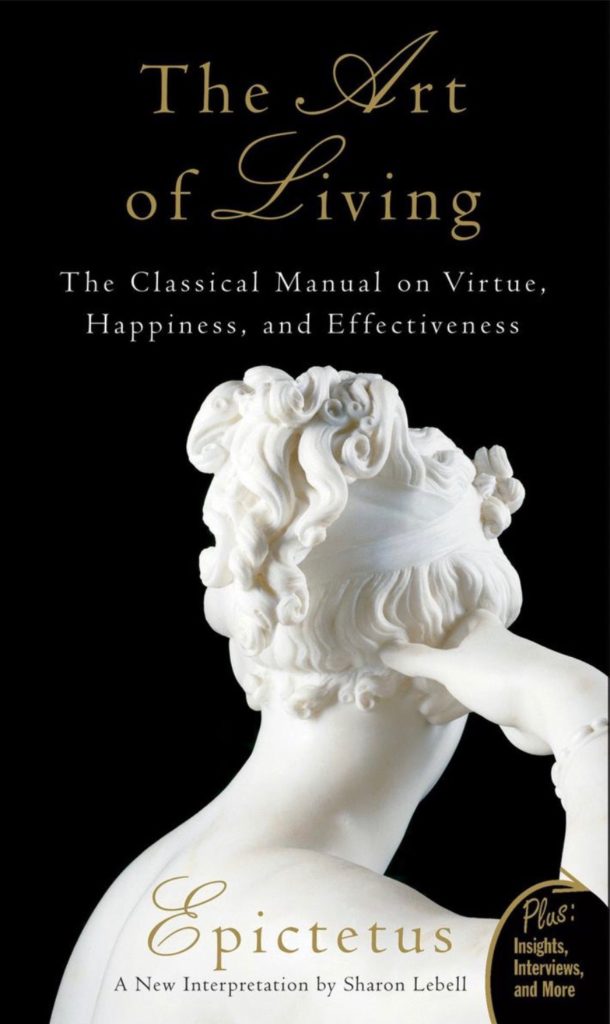 It’s a slim, entirely accessible contemporary translation and interpretation of the practical philosophy of Epictetus, a Stoic philosopher who lived from about 55 to 135 C.E. He thought that learning and living philosophy (literally, the love of ideas) is a practice that is both available to and good for everyone. The opening lines of this book are:
It’s a slim, entirely accessible contemporary translation and interpretation of the practical philosophy of Epictetus, a Stoic philosopher who lived from about 55 to 135 C.E. He thought that learning and living philosophy (literally, the love of ideas) is a practice that is both available to and good for everyone. The opening lines of this book are:
“Happiness and Freedom begin with a clear understanding of one principle: Some things are within our control and some things are not. It is only after you have faced up to this fundamental rule and learned to distinguish between what you can and can’t control that inner tranquility and outer effectiveness become possible.”
Right after discerning the un/controllable, one of Epictesus’s central tenets is that living well and moral development are synonymous. In our time and culture we tend to think that elites of all sorts (athletes, celebrities, professional artists, mega-Insta-influencers, and bazillionaires) have some kind of a corner on the living well market because they appear to have endless control and choices. Even the most sophisticated, critically minded of us can feel we aren’t quite somebody until we have evidence we’re successes, a book, a scalable idea, profitable business, or a large following. But going out in this moment of darkness can remind us of who we all are and what choice can really mean to us. Epictetus writes from a time when almost everyone had little control over their destiny. His philosophy of recognizing what you must relinquish to find peace offers a remarkably refreshing approach and, for me at least, a potential prescription. There is one passage that seemed especially relevant to this moment in our collective lives.
Caretake this moment.
Immerse yourself in its particulars.
Respond to this person, this challenge, this deed.
Quit the evasions.
Stop giving yourself needless trouble.
It is time to really live; to fully inhabit the situation you happen to be in now.
You are not some disinterested bystander.
…
He goes on
When your doors are shut and your room is dark you are not alone.
The will of nature is within you as your natural genius is within.
Listen to its importunings.
Follow its directives.
As concerns the art of living, the material is your own life.
No great thing is created suddenly.
There must be time.
Give your best and always be kind.
~Epictetus (Labell)
It is a season particularly prone to distractions from what I think Epictetus might mean by “the natural genius within.” We are in the cold dark season of the year and, it seems, in one of the cold dark (and decidedly unkind) times in our communities and country. It’s easy, in this moment of amphetaminic advertising and constant (mostly dire) news coverage, added to the holiday pressure to party, to dwell in dissatisfaction with the choices, leadership, historical moment, budgets, experiences, and even companions we actually have and to bemoan our lack of control. This dissatisfaction is no accident. Our social media feeds are full of people surfing better waves, dangling from steeper cliffs, having perfect weddings/better vacations/smarter children/etc./etc. Cutting-edge neuroscience is employed by hawkers to figure out how to get our brain’s reward center (the ventral striatum) to move us to want more of the choking assortment of available stuff, and the best possible experiences, plus more money, more recognition, and, while we’re at it, more of something crucial but elusive that we can’t quite identify but sure would like to just purchase in bulk from Costco.
All this apparent choice (and its illusion of control) can overwhelm. In the late 1980s the late, great David Foster Wallace wrote an essay about the effect on his cohort of the expanded assortment of television channels that came with cable.
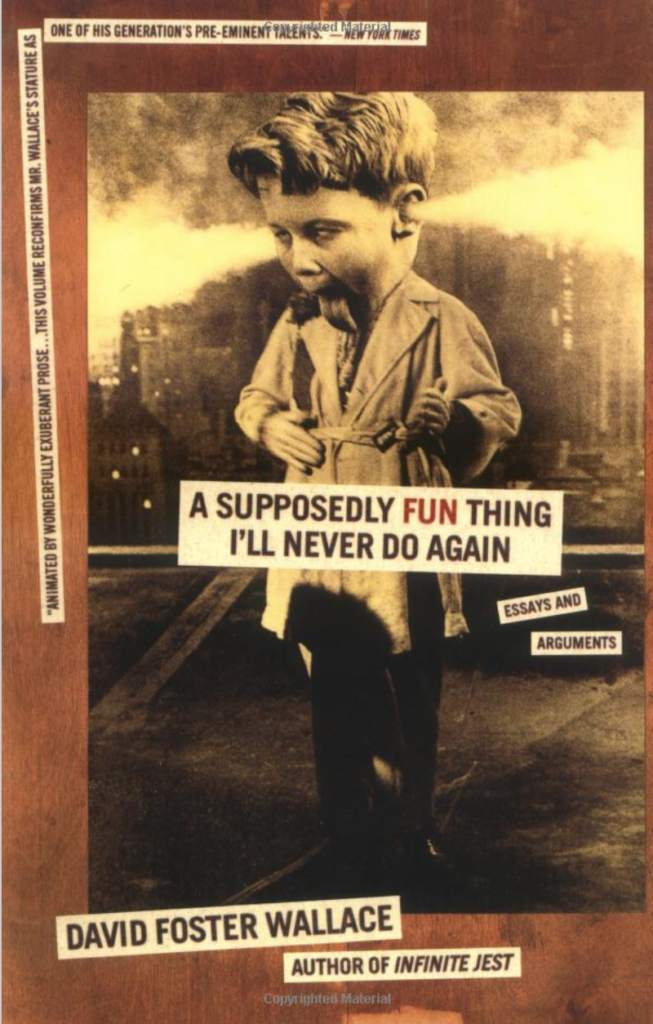
While it can seem almost medieval to think about only 40 channels of possible incoming distraction (as opposed to the 210,000,000 Google just delivered in response to me entering the word “distraction”), or the endless feed of my social media, I think he was onto something fundamental about the problem with a glut of choices.
Wallace wrote
“contemporary [entertainment] has gotten vastly better at enabling the viewer’s fantasy that he can transcend the limits of individual human experience… As a Treat, my escape from the limits of human experience is neat. As a steady diet, though, it can’t help but render my own reality less attractive (because I’m just one Dave, with limits and restrictions all over the place), render me less fit to make the most of it (because I spend all my time pretending I’m not in it), and render me more dependent on the device that affords escape from just what my escapism makes unpleasant.”
We really do get only “one wild and precious life.“
Plus these damn gadgets (like the one I’m typing on, the very one that gives me access to some damned inspiring photographs, eloquent writing and NPR, Mrs. Maisel and Encounters at the End of the World, and, and, and) are a source of light and, like moths, we sure do seem to like light. But long light isn’t this moment. Not in this place. It’s tempting to watch, and scroll, click and read our way through this dark season but, if Wallace was right, our escapism is what fuels much of the unpleasantness we have to work so hard and spend so much time and treasure to escape.
These short days and long nights of the cold, dark time offer their own unique abundance of wisdom and lessons if we can convince ourselves to layer up and go into that darkness where we are not really alone. If we can lean into and deal with the material out of which our lives are woven right now, and hold tight the hand of the friend who’s close, we might be able to see something in the dark we could never perceive in the light. The solstice is a fundamental shift beyond our control, one that we all have access to. If we can make our bodies more deeply aware of the days’ hours and feel that shift, if we can allow ourselves a regular dose of quiet in the dark, I have little doubt we could develop our capacity to hear the sotto voce opportunities for greater meaning, connection and caretaking in every moment.
Once you let your eyes adjust, it turns out the darkness isn’t only that— it’s also a resetting of your senses to perceive and find revelation through quieter light.
Here’s wishing you all a meaningful, mysterious, and adventurous Winter Solstice!
Further Exploration:
If you prefer to engage with Epictetus in a less interpreted form (a worthwhile endeavor!), you can read his discourses online for free here:
http://classics.mit.edu/Epictetus/discourses.html
While I have not sampled them all, I’d stake resources on a bet that David Foster Wallace delivered the single greatest commencement speech in the history of the genre.
An NBC listicle offering 5 good reasons to go out in the cold:
https://www.nbcnews.com/better/health/5-good-reasons-go-outside-even-when-it-s-freezing-ncna843331
“Physiological and psychological effects of walking on young males in urban parks in winter” Chorong Song, Dawou Joung, Harumi Ikei, Miho Igarashi, Mariko Aga, Bum-Jin Park, Masayuki Miwa, Michiko Takagaki and Yoshifumi Miyazaki. Journal of Physiological Anthropology (JSPA)201332:18
https://jphysiolanthropol.biomedcentral.com/articles/10.1186/1880-6805-32-18#Sec3
Sharks, painting, and patience
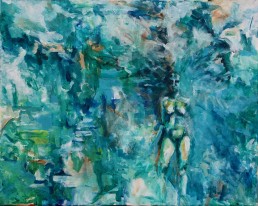
Joanna Frye, Untitled, 2017, Acrylic on Canvas
Sharks, Painting, and Patience
In our interview, artist and frequent ocean buddy Joanna Frye and I discussed the release from creative responsibility that comes with surfing. She said that when she surfed it felt like she was being painted instead of doing the painting. There is still plenty of creating going on when you surf or play in the ocean, it’s just not all coming out of your own limited human imagination and skillset. It’s not all dependent on your work. For those moments in the waves, you can’t even begin to lie to yourself about being in control of life, about dominating the world, or forcing an outcome. But you do, eventually, achieve some sense of control of your relationship to yourself and the uncontrollable.
Playfully, creatively tapping into a wider, deeper and, if you prefer, higher power is a practice that can, over time, change your mind and could do so, some neuroscientists think, by measurably changing your brain.

The research about the plasticity of our brains is thrilling but I don’t need a neuroscientist to tell me this: to catch a wave requires presence and acceptance: you can’t hurry things, or waste time thinking about the past or the future, or wish they were easier or more interesting. There just isn’t time for that. Not if you want to be there for that ride, to feel the rush and lift, and respond in whatever way your own body will allow, to be with that force for a delicious instant, to feel the joy of being on a planet with gravity instead of putting your creative energy into the futile task of working to somehow defy it.
One of the 20th Century philosophers I think is worth wrestling with is Maurice Merleau-Ponty. He wrote that “[t]rue philosophy consists of re-learning to look at the world.” It’s a pretty inclusive definition and seems to include those of us who are honest and brave enough to know that we need to revise our vision as we, our insights, and the world change. Merleau-Ponty’s work focused on that instant of perception, a sliver of time before our scientific, categorical mind can take over and begin to catalog, dismiss, prioritize, and judge. He thought this moment of perception was the beginning of all creativity, all art.
He wrote that “it is the expressive operation begun in the least perception, which amplifies into painting and art.” He also thought painters were uniquely well suited “amplifiers.”
Carolyne Quinn wrote a wonderful, accessible article about Merleau-Ponty’s work on perception and painting. Quinn writes that, for Merleau-Ponty “meaning is not found pre-existent in the world but is called into existence by the body’s own activity in the world.”
Merleau-Ponty’s work is more popular since his death than during his life because, as it turns out, his writing is more relevant to what we’re learning about our brains now than what we knew about them then. Think about it. If he’s even a little right, and we are dependent on our sensing bodies to help create meaning, what are our hyper-stimulated, scanning, swiping, fractured, and busy days doing, not just to our bodies, but to the meaning we call into existence in the world.
Quinn describes one of Merleau-Ponty’s most inspiring ideas, something called “reversibility.” Merleau-Ponty thought our body is both an entity that senses and an entity being sensed, and not just in the way your body is busy seeing and being seen by other partially dressed humanoids on the beach, but in the touch of a tree or a rock or a wave. You can be altered by the wave and the wave by you. Everyone who plays in the ocean knows this to be true. Merleau-Ponty just expands that intuitive understanding to encompass all perception. He thought that to understand either side of perception- being touched or touching, we needed to know they were not wholly separate, not either/or, and not one and the same. Instead, they overlap, both always part of any perception we have of the other. He thought most of us walk around with limited vision that ignores much of the rich, invisible depth of being sensed by the other. But not painters. According to Merleau-Ponty, while the rest of us (including photographers) couldn’t get at the real substance of perception, painters could render the invisible visible to the rest of us. Their paintings had the potential to render some of this fluid motion, this oscillation between seeing and being seen.
Because I live on the coast, because it’s the discipline at the center of my work and life, because it makes me feel sane, and is just too damn too beautiful to miss, I get in the ocean almost every day. A few weeks ago I hurt my rib in an unlucky fall and, while it’s been healing, I’ve been going in with my camera instead of my surfboard, photographing in the small, late summer waves each dawn and early morning. There are fewer black skimmers and the fish are starting to return in droves, each peaking shore break wave filled with dozens. My own species has begun its daily turtle walks. One one level, they’re out there looking for signs of nesting. But really, I think they are looking to call the meaning of hope into existence, walking with the hope that, for some perceiving moment in the future, they might dig a trench or hold a light that could help hatchlings, endangered as individuals and species, along their way. Even if they don’t save every turtle, they might save themselves.
Today, between sets of waves, a small shark swam from behind me, passing me on the right at a slow, leisurely pace— maybe there’s food aplenty. Rushing isn’t a priority. It must have seen me before I saw it, just so much inedible flotsam.The moment I saw its fin break the water, that instant of perception before I could categorize, the moment when my animal brain registered its size relative to mine (it was tiny, maybe 2 feet long), at its presence in the water, right there, with me, seeing me, and the resulting elation I felt at being seen (if it had been 2 meters long, I expect my perceptions might have been… different),— all reminded me of both Merleau-Ponty, and one of Joanna’s paintings that hangs on my wall, one that evokes something of immersion in liquid and light and motion, just like this morning. Reminding is a word we often say but don’t appreciate. To remind yourself is not just to recall, but to restore your mind to something valuable. I love that painting because it feels like the dissolution that happens to me in the ocean, the unimportant stresses and worries gradually losing concentration until they wind up just disappearing, and, even if they return, the wisdom and perspective that comes from the their intermittent disappearance endures.
Philosophers have been imploring us for a long time to learn to accept what we can’t change. The Stoics of Ancient Greece did it. Some Buddhists did (and do) it. The Serenity Prayer does it. But most of us still suck at it: quick to irritation or anger or a wish for a trap door into which you might dispense with or exchange the reality of the aggressive driver, the glitchy gadget, the broken rib- there are so many situations in our daily lives that regularly, reliably immerse us in stress, even when everything’s going “right.”
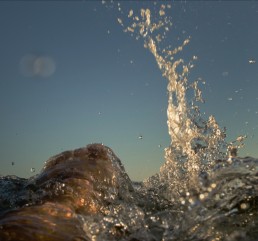
As soon as I realized my rib was well and truly hurt, that I might miss weeks of surfing these beautiful summer waves, I panicked. I didn’t want to miss waves. This was a disaster.
A minor one my brain scolded.
My feelings did not obey.
I began to focus on speed healing. Googling nutrition and bone injuries, stocking up on vegetables with Vitamin K (green cabbage has twice as much as red), doubling up on magnesium supplements, uncovering the miracle of comfrey (which is pretty miraculous). Maybe it was just a bad bruise and would be surfable in a few days?!? A couple of false starts over the next week helped me settle in. As a wise yoga teacher once told me, “If you get into a fight with your body, you are going to lose. Every. Single. Time.” Recovery would take exactly as long as it would take.
One of the primary, foundational motivations for this Waves to Wisdom project is finding ways to let others in on one of the central, grounding, and most useful working theories I’ve figured out in a long time spent figuring: our bodies and their perceptions are primary to what we create. What we experience when we are at play and deeply at home in our bodies, when these bodies we all have feel integrated into, even continuous with our larger home on the planet– these moments can be lessons that recast our lives; even the objects, people, and relationships that seem utterly familiar to us. We can perpetually see them anew and, in turn, be renewed in their eyes. The ocean is one particularly exciting and beautiful way to learn these lessons.
If, on the other hand, we spend all of our time scanning, slouching, and constricting, or dominating, forcing, and demanding, we can’t help but create meaning and methods to match. We value what will entertain or enrich us in our slouch instead of allowing ourselves the benefit of experiencing life elongated, expansive, fully oxygenated, and open to what’s right here and far away, open to the interdependence of self and other. We all sometimes allow the endless stream of information and news and wellness advice to overwhelm this moment, the only one we have, the one we don’t get back, the one in which someone nearby, a tree, a turtle, a neighbor, maybe even we ourselves, could benefit from some awareness of seeing and being seen.
That shark was today’s teacher and the painting it somehow called into my awareness the fortunate ongoing reminder of the lesson. I’ve been looking at it for a long time but I saw it anew today and it wasn’t anywhere in sight. I realized, without words, with the flick of the tip of undulating fin and tail, why I’ve loved it so much. That instant of sensing, of being sensed, being part of what Davis Abram calls “the biological matrix of life on the planet,” and being a person fortunate enough to return to walls and art and one painting in particular, was an exquisite episode of “reversibility.”
I owe that “unlucky” fall for the gift of this day sitting at my desk, rib healing, with the painting about as far away as the shark was, seeing me see it with reminded eyes.
For us too, if there’s enough food, maybe rushing doesn’t need to be a priority.
For information about retreats or to set up a free coaching session email maia@wavestowisdom.com.
Sources
Abram, David. “Merleau-Ponty and the Voice of the Earth.”Environmental Ethics, volume 10 (1988), pp. 101-120.
Cheron, Guy. “How to Measure the Psychological ‘Flow’? A Neuroscience Perspective.” Frontiers in Psychology 7 (2016): 1823. PMC. Web. 31 Aug. 2018.
“Maurice Merleau-Ponty (1908-1961)“. The Internet Encyclopedia of Philosophy
Staiger, Christiane. “Comfrey: A Clinical Overview.” Phytotherapy Research26.10 (2012): 1441–1448. PMC. Web. 31 Aug. 2018.
“Stoicism.” The Internet Encyclopedia of Philosophy
Quinn, Carolyne. “Perception and Painting in Merleau-Ponty’s Thought.” Paris III, Université de Sorbonne-Nouvelle/University College Dublin
I-Ocean: Part 2
On good afternoons, here at the blue metal patio table where I work, I lean back and close my eyes in search of some elusive word or idea and I can still see lines of swell coming towards me. To have this sort of oceanic wave overlaying one’s usual electromagnetic brainwave is a good influence. On days like today, when I’m practicing this discipline well, the refrigerator’s hum and the call of the Carolina wren nesting under the bedroom window are part of the same whole as the white noise of the rough surf punctuated by the scoop of resting skimmers. Skimmers must get tired their from long, low flights just above the water’s edge, open beaks dragging along the surface. Holding tea on my palate for a few extra seconds, I wonder what that kind of ocean practice must look like through their eyes and feel like in their beaks.
Over years of regular play, effort, and immersion, the ocean has given me new ears to hear and I’ve gradually become a better listener. It isn’t just the waves themselves or the liquid logic of other surfers I feel attuned to. The waves’ chaotic beauty and my own fear, innumerable failures and rare moments of accomplishment seem to have allowed me to feel more connected to just about anyone honestly grappling with big, powerful, overwhelming questions and forces. These days, that’s a lot of us.
Learning to surf is, as Ethan Crouch observed in the latest Waves to Wisdom Interview, “an ongoing practice.” For me, part of that practice involves being open to taking off on some unexpected, even uncomfortable rides, especially off the board. The latest was a difficult but immensely rewarding few days submerged in the writing of Martin Buber. Ethan inadvertently assigned the reading, in particular Buber’s book I and Thou (Ich und Du), when he cited it as one of his primary philosophical influences.
Buber was a Jewish theologian and philosopher who wrote the first version of I and Thou between the two world wars. I’m neither Jewish, theological, or even theistic but it’s precisely the creative potential of this sort of dis-orientation that lies at the heart of Waves to Wisdom. Our reactions to the unfamiliar and unexpected have equally unfamiliar and unexpected lessons to offer. I’m grateful to Buber for the intellectual and existential workout, and for the deepened appreciation for the time with Ethan.
In his introduction of Ich und Du (I and Thou), translator Walter Kaufmann warns that the original work, with its plays on words and unconventional use of language, is essentially untranslatable. Since my German doesn’t extend far past “bratwurst,” I’ll just have to trust him.
One of Kaufmann’s first tasks is to take issue with previous translations’ use of “Thou” for “Du.” Thou, Kaufmann, notes, is just plain stuffy. It’s true— when’s the last time you “thou’d” a loved one? As I understood him, one of Buber’s goals is to make a case for seeing with open eyes and hearing with new ears. He’s making a case for the importance and reward of spending all our days swimming in the waters of deep love and presence, a love that is all around us in the workaday world.
“Thou,” Kaufmann notes, “immediately brings to mind… God of the pulpits,” a power sequestered in the sacred sabbath. Instead, Kaufmann translates “Du” as “You”— the You of lovers, parents, true friends, and those who “pray spontaneously” to an intimate diety. Reading in the wake of working on the Ethan interview, this work is an evocative manual for accessing connection in a world that creates and pushes us into separation and fragmentation. Sow how do you do it?
Buber’s cornerstone idea is that we humans build our communication and, in the process, ourselves with the use of two “basic words”— I-It and I-You. We are always choosing between one or the other in all of our interactions with other people and the world. We speak these two basic words with our hearts, attitudes, actions and values and “by being spoken they establish a mode of existence.” Every time you use the word “I,” in thought, speech, or deed, you choose I-It or I-You and, in the process, alter the form of your self.
When we speak I-You we are intimate, open, and utterly present. We feel the You we encounter and ourselves as part of the whole, infinite, eternal You. Speaking I-It puts us in a place of distance, categorization, abstraction or analysis and we might see the other before us as just one of many, an object to be used or experienced.
Now, Buber doesn’t come right out and say I-It is terrible but the whole work is a lavish literary celebration of the benefits of speaking I-You as much as possible. Buber thinks no human is free from necessarily existing in both modes. Our lives are a combination and so are we.
The connection to Ethan’s life story was clear to me. I found his sense of what Brené Brown calls “true belonging” inspiring. In my work as a teacher, mentor, and coach and also in the messy beauty of my own life, I’ve worked to guide many people wrestling with how they could find or cultivate this sort of connection.
Buber runs right at the pervasive problem of loneliness and isolation in I and Thou and, as he’s a theologian, it’s no surprise that his suggestions are all embedded in a relationship to all that’s divine. He has thoughts about overcoming loneliness but this is no feel-good, self help prescription that could be bulleted into 10 takeaways that will make you rich and happy.
Feelings, in fact, are only a part of what he thinks is required for connection and community to thrive. He writes, “Loving community is supposed to come into being when people come together, prompted by free, exuberant feeling, and want to live together” but “that is not the case.” All members of a true community “have to stand in a living, reciprocal relationship to a single, living center.” For Buber, the word he uses to describe this center is sometimes the You-world and sometimes God. If my reading is accurate, we are both and both are us.
According to Buber, “The You-world coheres in the center in which the extended lines of relationships intersect: in the eternal You.” (p.148) In our interview, Ethan told the story of the extended lines of his own relationships with fellow activists. After working long, hard hours together to effect change or pass legislation on the ocean’s behalf, with no guarantees of success, Ethan realized what he felt for his companions was unadulterated love. There is I-You all over this tale.
These activists share love for and a desire to protect the ocean from further assault from those in the It-world who only use and measure it. It certainly looks as if the ocean might be functioning as the single, active center of the community. It is, after all, the biggest active center in our earthly corner of the cosmos. And, in Buber’s language, speaking You to it can be profoundly transformative.
But life can’t all be I-You. Most of us do work that consists of analysis, abstraction, measurement or categorization. We inevitably return to our desks, screens, and boxes. Certainly, as a construction consultant with a “passion for scheduling” (!!!), Ethan spends much of his time It-ing all over the world and that’s a good thing! Buildings need to be thought about, analyzed, categorized, and measured. But maybe his capacity to carry that active, oceanic center into his work world alters him and his relationship to his work for the better.
According to Buber, “Every actual relationship in the world alternates between actuality and latency… You must disappear into the chrysalis of the It in order to grow wings again.” But if the relationship is pure, “latency is merely drawing a deep breath during which the You remains present.” (148)
When Ethan talked in our interview about developing long term relationships with his clients, building public projects, and protecting his home stretch of coastline it certainly sounded as though the latent You of his regular, loving immersion in the ocean, in his words, “that experience with the Thou,” might form the breathing center of the his work life in the It-world.
As a theologian, Buber’s work is to understand, articulate, and study the nature of the divine. While the language of God (and especially the Fatherly sort) still gets my back up at times, a stance of reverence before the continual revelation of a relationship with a higher power gets more comfortable every time I get in the ocean with an intention to surf. I will not be in charge of what that looks like. Not ever. Each wave is more practice in understanding that predictions are rarely true, and even current happenings are bursting with implications we can neither fully perceive nor accurately assess. Analysis in the moment interferes with full presence and is sometimes worse than useless.
To surf as a wisdom practice, the ocean can’t be an It. To borrow Buber’s language, if we “observe it” instead of “heeding it” and “instead of receiving it, [utilize] it” then we’ve missed the most substantial, life-giving gifts it has to offer.
The ocean gave and gives us life on this planet. Gratitude before the giver seems not only polite but prudent. I’m intimately connected to it in my quotidian everyday, and it infuses me with a sense of connection, of belonging. The ocean is water with life in it and so am I. There it is easier for me to feel part of a whole, a You among the You. And its vast horizons and geological age are plenty close enough to eternal for my tiny mind. Especially when, fingers cramping and pen in hand, I lean back to stretch, close my eyes and see waves undulating towards me.
I-Ocean: Part 1
I-Ocean: Ideas for a good life from Ethan and Martin
Part 1
In the years I’ve been acquainted with Ethan Crouch, he’s always struck me as a person whose life has exceptional integrity. His broad, bearded smile is quick and welcoming, as optimistic as the the ancient Ford Bronco that waits open-windowed and unlocked while he surfs. He clearly loves riding waves but his habit doesn’t have the smell of escape. He seems just as motivated and fulfilled in the work life that takes up most of his days, and in being a leader in Surfrider, an activist network that occupies another substantial chunk of his time. So many of us believe our lives are built of discreet, even disparate spheres we have to work to balance or, worse, juggle. Not Ethan. It’s one of the reasons I was thrilled he agreed to a Waves to Wisdom interview.
Near the end of our conversation, he cited Martin Buber’s work I and Thou as one of the crucial philosophical influences on his life, not just as an undergraduate studying philosophy, but in his current manifestations as an open hearted but determined activist, a successful business owner, and utterly stoked surfer. Listening to our interview, you know Ethan Crouch works hard. You hear the joy he derives from what he calls his foundational practice of finding connection through surfing. Ethan has spent his adult life building on that practice and, in the process, found integrated connection with his community, his values, and his life path.
From my perspective, a crucial part of the Waves to Wisdom project is learning from the nimble, creative, open-minded acceptance that surfing demands. Building on those wave-born habits when I’m dry and landlocked, I look for ways to offer to others what I glean from these hard won lessons. That means staying open to any wisdom that surfaces from the waves and this last interview left me feeling like Martin Buber was, clearly, calling.
Part of the clarity arose from the familiarity of Buber’s name. Martin Buber has been a favorite of some of the most brilliant, passionate, and loving members of the community of Quaker-influenced educators and students I worked among for 17 years. It was among this group that it first occurred to me that perhaps I needn’t be afraid of Christians, a prejudice I feel mostly freed from. To be clear, Buber was Jewish but his work is perpetually popular among a subset of Protestants, including many Quakers.
My own spiritual orientation is somewhere in the neighborhood of aspiring animism although, like almost every single other person I know, or have ever known, I’m culturally, hopelessly monotheistic — forever looking for the one true source or method or path toward truth. It took me a long time to really feel the wisdom of what I believe Ethan means when he says that truth is like water, when you try to hold it in your hands it just squeezes out.
I knew Buber might be a challenge for me but I hoped I’d be open enough to learn what Ethan found so powerful and, perhaps, find something I could keep and then share. Some enduring practice or pattern in his ideas about the sacred and how to cultivate it in our workaday lives. After all, that sort of habit, of nurturing the capacity for powerful connection to perspective and purpose is precisely the point of Waves to Wisdom.
Plus there was Ethan. His business’s LinkedIn page reports that they have a “passion for scheduling.” In my mind, passion and scheduling go together like hot fudge and scaffolding… huh? I had things to learn. This fellow student of salt spray clearly has some priorities figured out and if Buber helped him get there, I wanted in on it.
I took a deep dive into this difficult little book, I and Thou, and will post something more substantial about in a couple of days. In the meantime, I can recommend it to anyone who’s interested in being challenged by ideas and language that is perplexing, beautiful, and occasionally revelatory. I was grateful for my own late life capacity to accept that Buber’s explicitly religious language might offer something of relevance to my own ocean-centered existence and passion for providing inspiration and guidance to others.
According to Buber’s translator, Walter Kaufmann, one of Buber’s accomplishments is endowing the social sphere with a sacred dimension. It doesn’t take much mental steam to see that our social sphere could use a lot more of that dimension right now. A great book is a great teacher and, as is that case with all the great teachers, the subject of the lesson is life.
Kaufmann writes:
“A good book or essay or poem is not primarily an object to be put to use, or an object of experience, it is the voice of You speaking to me, requiring a response.” (p.39)
This “You” is sacred and, in some sense, divine. Some might even say it’s God. I wouldn’t, and it was a bit of a struggle for me when Buber did. Kaufmann acknowledges that it might be better not to use religious terms “because they are always misunderstood,” and then issues an assignment.
“We need a new language, and new poets to create it, and new ears to listen to it. Meanwhile, if we shut our ears to the old prophets who still speak more or less in old tongues…we shall have very little music… Let him that has new ears listen to it in a new way.” (p.31)
More than any other force in my life, the ocean has offered me new ears.
I’m listening.

